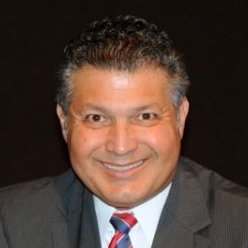“Go back to your country!”
Leaders of Latino service organizations say such statements have been heard more often in metro Atlanta schools since the November presidential election.
Latino youths in metro Atlanta are being harassed and bullied more since the Nov. 8 vote, say officials with Norcross-based CETPA, a mental health and substance abuse services organization.

National reports also cite an increase in hate incidents against Hispanic children.
“We have seen after the election a spike in the number of kids reporting they’re being harassed . . . being called bad names,” says Belisa Urbina, executive director of Ser Familia, which supports Latino families in metro Atlanta.
Urbina says her own granddaughter, a citizen, was harassed in a Paulding County elementary school.
The Georgia Department of Education, however, said its safety hotline has not received any complaints since the election about bullying or harassment of Latino students in the state.
Illegal immigration was a prominent issue in the presidential campaign, and many see Donald Trump’s strong stance on the issue as the reason he won the White House. Trump has vowed to fulfill his campaign pledge to build a wall on the Mexican border to limit illegal entries.
Hispanics are not the only group affected by immigration policy.

But due to the close proximity of Latin America to this nation — and the long historic relationship — Latinos are at the epicenter of the debate, and many feel especially vulnerable. While Latinos are the largest and fastest-growing minority in the United States, they often belong to families that have mixed legal status. A child born in this country is automatically a U.S. citizen, but family members born just across the border may have no U.S. legal status at all, even if they grew up here.
Urbina and others say many Latino youths, in Georgia and nationally, fear the deportation of a family member under the new administration, leading to higher family stress.
The mental health strain on Latino families was evident well before the election. The CDC reported in 2015 that a nationwide survey of youth in grades 9–12 in public and private schools in the U.S. found Hispanic youths were more likely to report attempting suicide than their non-Hispanic peers, either black or white.
Post-election, more young kids “are coming in with anxiety and depression symptoms,” says Gloria Juliao, clinical supervisor for children and adolescent services at CETPA.
Young people feel the pressure
Latinos account for one of every four American children, and more than 90 percent are native-born U.S. citizens, said a December report from the National Council of La Raza, a Hispanic civil rights and advocacy organization.

Trump himself, shortly after his election, said in a “60 Minutes’’ interview that he was “saddened” to hear that some of his supporters were inciting violence, and told them to “stop it.” His defenders have noted that some of the worst initial reports of pro-Trump violence turned out to be hoaxes. There have been some anti-Trump incidents as well.
Nationally, hate incidents spiked after the election but have eased recently, according to the Southern Poverty Law Center. Yet hate activity remains above pre-election levels, according to the civil rights organization, which monitors such events.
The National Council of La Raza said the 2016 election and its aftermath have greatly intensified bullying and harassment against Hispanic youth nationally. ”Many young Latinos have been exposed to profound hostility and overt xenophobia in schools and other social spaces,’’ the report said. It called for improved mental health services for these youth.
Schools have always been hotbeds of bullying. Sometimes the problem is related to the social or political climate of the times, and sometimes it’s simply about the dynamics between particular children. Bullying in children has been known to cause health problems both in victims and in aggressors, according to school counselors and nurses.

Among victims, there’s an increased anxiety level, loss of self-esteem and confidence, depression, self-harm and suicidal thinking. Many young victims increasingly skip school to avoid being bullied, causing their academic work to suffer and their educational aspirations to fade away.
Survey of educators
The Southern Poverty Law Center did a post-election online survey in November of K-12 educators, which found 90 percent of the 10,000-plus respondents reported that school climate has been negatively affected by the election results.

The survey also found 80 percent described heightened anxiety and concern on the part of students worried about the impact of the election on themselves and their families.
The center’s report quoted an anonymous Georgia high school teacher as saying: “I’ve had a lot of students repeat the phrase ‘Trump that bitch’ in my class, and make jokes about Hispanic students ‘going back to Mexico.’ ”
In DeKalb County, two Cross Keys High School teachers left their jobs after complaints that they made anti-immigrant comments inspired by Trump’s election. The teachers denied the allegations and say they are victims of “hysteria” or misunderstanding, according to the Reporter Newspapers.
Urbina of Ser Familia says that “some schools are talking to kids, making sure teachers have conversations with kids about tolerance.”
Other schools “are saying [if they] ignore the problem, it will get better,’’ Urbina says. “My feeling is if nothing is done, it will get worse.”
“We have to be respectful. Many of the kids were born here or were brought her at a very young age. This is the only place they know as home.”
Pierluigi Mancini, founder of CETPA, says that much authority in Georgia schools is given to the principal. If a community can build a good relationship with a principal, it can help set up an atmosphere of inclusion in a school. He cites Graves Elementary School in Norcross as an example.

There, principal Clayborn Knight says the school, which is majority Hispanic, tries to make programs ‘‘where every child can feel they’re a part of’’ the school.
“Our counselors are very proactive in terms of educating students on accepting others and their differences,” Knight says.

